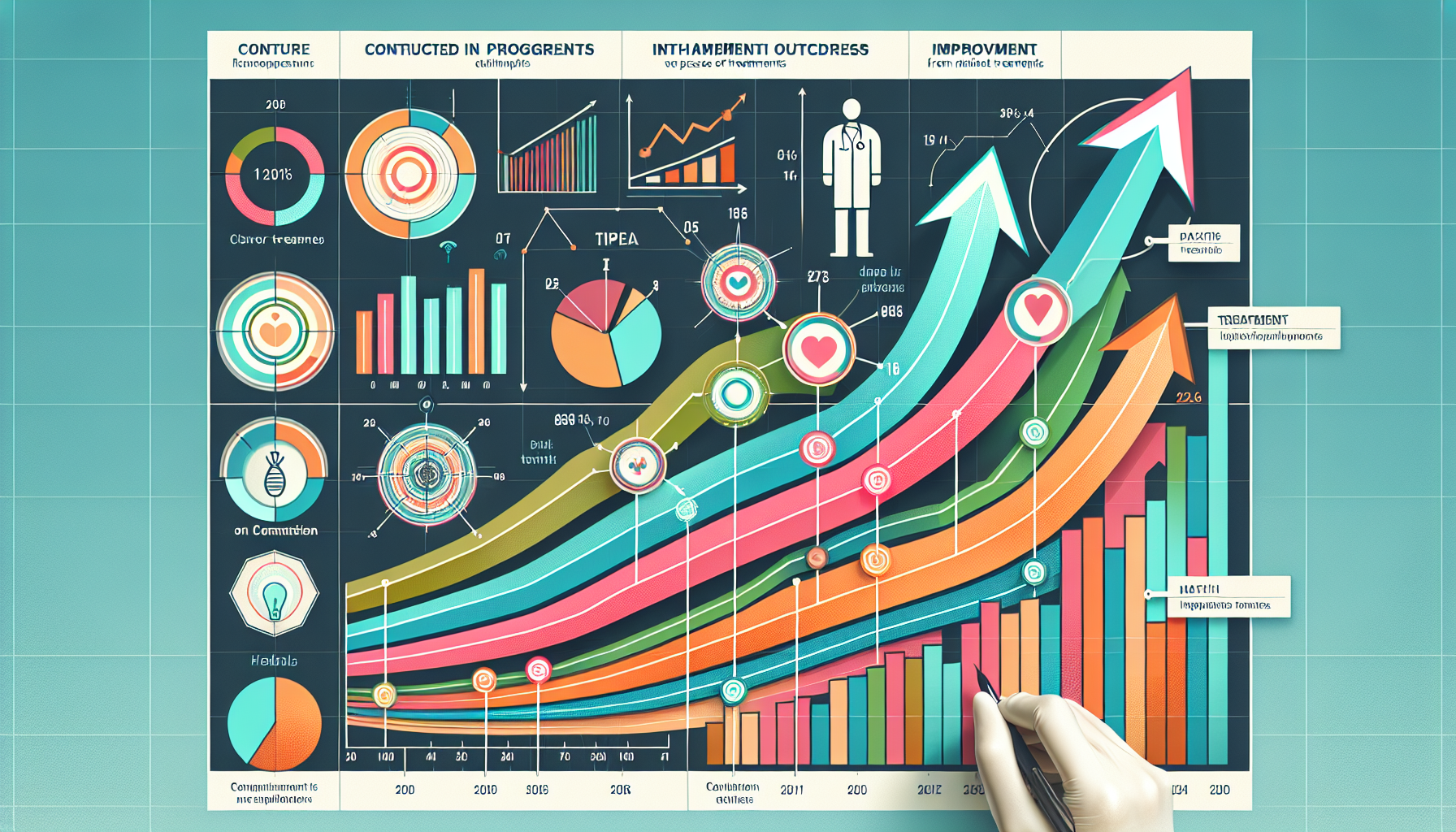The Future of Healthcare: UHC's Role in Career Innovation

Technology has become a cornerstone of modern healthcare, influencing everything from patient care to administrative processes. UHC is leveraging advanced technologies such as telehealth, artificial intelligence (AI), and machine learning to enhance service delivery and improve patient outcomes. For instance, telehealth has experienced exponential growth, particularly in the wake of the COVID-19 pandemic, enabling healthcare providers to reach patients in remote areas and facilitate real-time consultations. According to a report by the American Medical Association, telehealth visits surged by over 300% during the pandemic, illustrating the critical role of technology in healthcare. With this technological shift comes a demand for new skill sets. Job seekers must develop competencies in digital health technologies, data management, and cybersecurity to keep pace with the changes. UHC recognizes this need and has implemented training programs that equip employees to navigate these tools effectively. By fostering an environment where continuous learning is encouraged, UHC not only enhances employee capabilities but also strengthens its position as a leader in the healthcare sector.
Data Analytics: The New Frontier
Data analytics is reshaping the way healthcare organizations operate and make decisions. At UHC, data is harnessed to drive strategic initiatives, optimize resource allocation, and personalize patient care. The ability to analyze vast amounts of information allows UHC to identify trends, predict health outcomes, and tailor interventions to individual patient needs, ultimately leading to better healthcare delivery. For example, UHC utilizes predictive analytics to determine patient risks, enabling proactive interventions that can prevent hospital readmissions. As the reliance on data continues to grow, so does the demand for professionals skilled in data analytics. UHC is actively seeking data scientists, analysts, and other experts who can interpret complex data sets and derive actionable insights. The company’s commitment to innovation means that employees who invest in developing their analytical skills will find themselves at the forefront of this exciting field.
Embracing Telehealth as a Career Path
The advent of telehealth has not only transformed patient interactions but has also opened new career avenues for healthcare professionals. UHC is at the leading edge of this development, creating roles specifically tailored to telehealth services, such as telehealth coordinators and virtual care specialists. These positions require a unique blend of clinical knowledge and technical skills, which UHC is helping to cultivate through targeted training programs. For instance, UHC has initiated workshops that provide healthcare professionals with the tools they need to deliver care virtually, manage telehealth platforms, and engage with patients through digital channels. This enables employees to remain relevant in an increasingly digital world and contributes to a more robust healthcare system that prioritizes accessibility and convenience. According to a survey by McKinsey, 75% of patients have reported a positive experience with telehealth services, further solidifying the necessity for skilled professionals in this domain.
The Importance of Adaptability and Lifelong Learning
In a rapidly evolving industry like healthcare, adaptability and a commitment to lifelong learning are essential traits for success. UHC promotes a culture of continuous professional development, encouraging employees to pursue additional certifications and training to stay ahead of industry trends. This proactive approach not only benefits individual careers but also enhances UHC's collective expertise. UHC's mentorship programs further support career innovation by connecting seasoned professionals with emerging talent. These relationships foster knowledge sharing and help cultivate the next generation of healthcare leaders. Employees who engage in these programs often find themselves better equipped to navigate career transitions and seize new opportunities within the organization. With healthcare constantly evolving, the ability to adapt is key to remaining relevant and effective.
As UnitedHealth Group continues to lead the way in healthcare innovation, it is also redefining the career landscape for healthcare professionals. By embracing technology, harnessing data analytics, and promoting adaptability, UHC is not only preparing its workforce for the future but is also shaping the very nature of healthcare careers. For job seekers and current employees alike, understanding these trends and actively engaging in continuous learning will be key to thriving in this dynamic and rewarding industry. The future of healthcare is bright, and with UHC at the helm, the possibilities for career innovation are limitless. As the industry evolves, those who are prepared to embrace change will find abundant opportunities for growth and fulfillment within this vital sector.
Telehealth Coordinator
UnitedHealth Group, Teladoc Health, Mercy Virtual
Core Responsibilities
Manage scheduling and logistics for telehealth appointments, ensuring seamless patient experiences.
Collaborate with healthcare providers to integrate telehealth services into patient care plans.
Monitor and evaluate telehealth service delivery to enhance operational efficiency.
Required Skills
Strong understanding of telehealth platforms and digital communication tools.
Excellent organizational and interpersonal skills to coordinate diverse teams.
Familiarity with healthcare regulations and compliance related to telehealth.
Healthcare Data Analyst
UnitedHealth Group, Anthem, CVS Health
Core Responsibilities
Analyze large datasets to identify trends in patient care and outcomes, driving decision-making processes.
Develop predictive models to assess patient risks and recommend preventive measures.
Create data visualizations and reports to communicate insights to stakeholders.
Required Skills
Proficiency in statistical software (e.g., R, SAS, or Python) and data visualization tools (e.g., Tableau, Power BI).
Strong analytical skills with a background in healthcare or life sciences.
Ability to translate complex data findings into actionable recommendations.
Virtual Care Specialist
UnitedHealth Group, MDLIVE, Doxy.me
Core Responsibilities
Facilitate virtual consultations between patients and healthcare providers, ensuring high-quality care delivery.
Educate patients on using telehealth technologies and address any concerns regarding virtual visits.
Collect and document patient information to maintain accurate health records and follow-up care.
Required Skills
Blend of clinical knowledge and technical skills, particularly in telehealth tools.
Strong communication skills to effectively interact with patients remotely.
Experience in a clinical setting, preferably with a focus on virtual care environments.
Clinical Informatics Specialist
UnitedHealth Group, Cerner Corporation, Epic Systems
Core Responsibilities
Implement and optimize electronic health record (EHR) systems to improve clinical workflows and patient care.
Train healthcare staff on best practices for using informatics tools and systems.
Analyze clinical data to identify opportunities for improving patient outcomes and operational efficiency.
Required Skills
In-depth knowledge of EHR systems and health informatics standards (e.g., HL7, FHIR).
Strong analytical thinking and problem-solving skills, with a focus on healthcare delivery.
Background in nursing, pharmacy, or other clinical roles, combined with informatics training.
Cybersecurity Analyst (Healthcare Focus)
UnitedHealth Group, HCA Healthcare, Siemens Healthineers
Core Responsibilities
Monitor healthcare networks for security breaches and vulnerabilities to protect patient data.
Implement security protocols and ensure compliance with healthcare regulations (e.g., HIPAA).
Conduct regular security assessments and train staff on cybersecurity best practices.
Required Skills
Knowledge of cybersecurity frameworks and tools, with a focus on healthcare-specific applications.
Strong analytical and troubleshooting skills to identify and mitigate risks.
Relevant certifications (e.g., CISSP, CISM, CEH) are often preferred.


